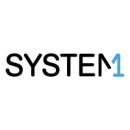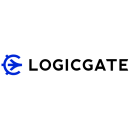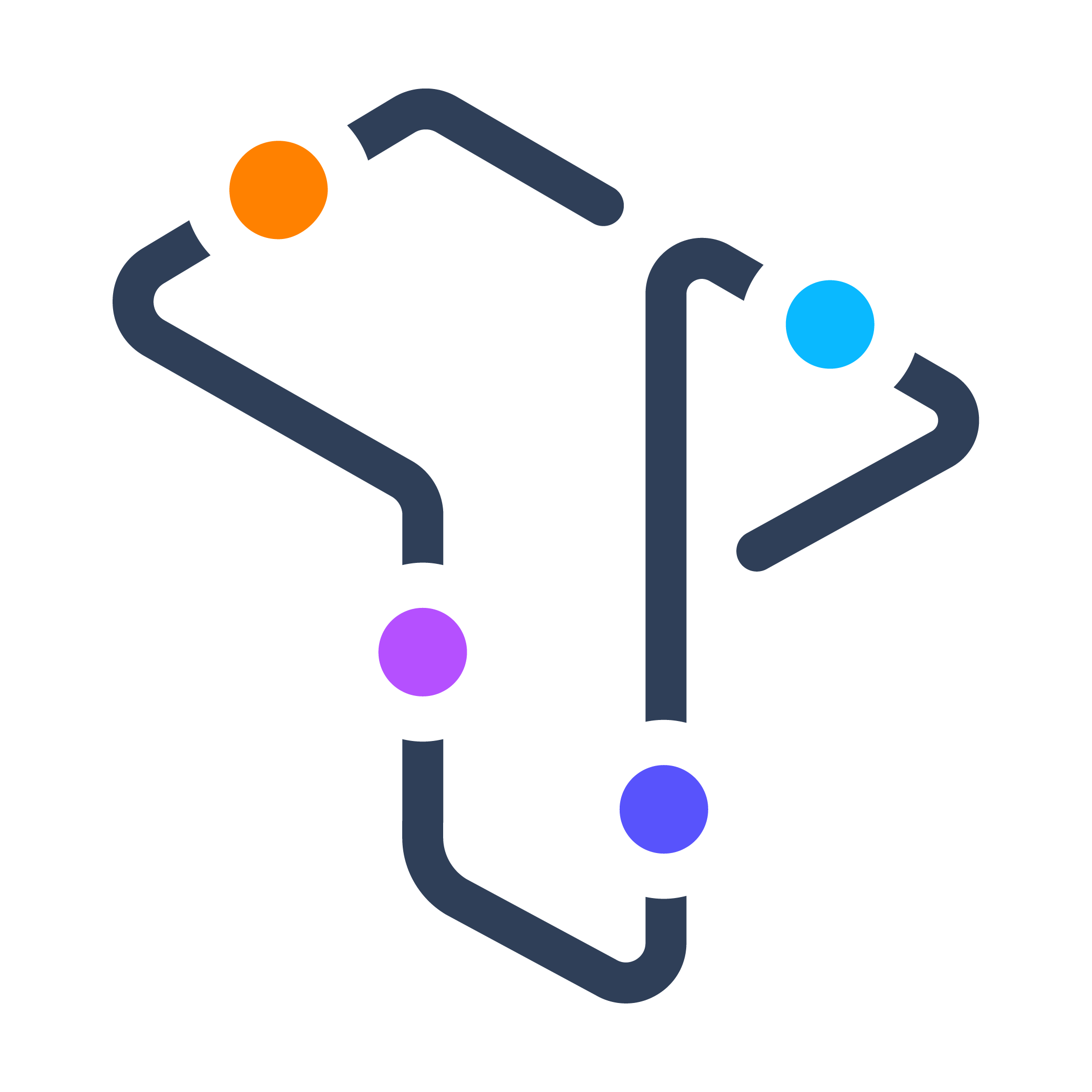While some are concerned about the rapid advancement of artificial intelligence, there are also numerous examples that demonstrate AI is shaping the future for the better.
Artificial Intelligence Examples
- Chatbots
- Manufacturing robots
- Self-driving cars
- Smart assistants
- Healthcare management
- Automated financial investing
- Virtual travel booking agent
- Social media monitoring
AI has already made a positive impact across a broad range of industries. It can automate processes to free employees of unnecessary labor, provide personalized learning options for students, enable cybersecurity companies to deploy faster solutions and help fashion companies design better-fitting clothing for their customers.
Let’s take a deeper dive into other artificial intelligence examples further demonstrating AI’s diverse applications.
Chatbots and Digital Assistants
Modern chatbots and digital assistants have evolved into sophisticated agents capable of reasoning through complex requests and managing end-to-end workflows. By leveraging natural language processing and deep app integration, they now handle everything from real-time multilingual support and personalized shopping to autonomous scheduling and cross-platform task automation.
Location: San Francisco, California
Company Size: 2,000 - 3,000 employees
Type of AI Used: Conversational AI and generative AI
OpenAI develops ChatGPT, a chatbot that acts as a collaborative partner in addressing complicated questions, handling coding tasks and searching the web for answers. ChatGPT is used across industries to create and process complex written text, images, audio and videos.
Location: Mountain View, California
Company Size: 100,000+ employees
Type of AI Used: Conversational AI and generative AI
Google develops Gemini, a chatbot and family of models that can generate text, images, videos and code, as well as analyze video and photos and create automations. Since its release, Gemini has been integrated into other products including Meet, Drive and search with its AI Overview feature.
Location: San Francisco, California
Company Size: 1,000 - 3,000 employees
Type of AI Used: Conversational AI and generative AI
Anthropic is the developer of the Claude chatbot, an AI assistant that generates human-like responses to user prompts. Claude can proofread text, write song lyrics, create recipes and even build software applications.
Location: San Francisco, California
Company Size: 1,000 - 2,000 employees
Type of AI Used: Conversational AI and generative AI
Perplexity is an AI-powered search engine that answers users’ questions through a conversational interface, much like a chatbot. Using large language models and natural language processing, it interprets user prompts, searches the web and delivers relevant information in real time. Unlike traditional search engines that list links, Perplexity provides direct, plain language responses, handling everything from factual questions to complex inquiries — and even coding problems.
Location: Palo Alto, California
Company Size: 1,000 - 3,000 employees
Type of AI Used: Conversational AI and generative AI
xAI develops the Grok chatbot and advanced AI models with reasoning and real-time understanding capabilities. It has also developed Grokopedia, an AI-generated online encyclopedia.
Location: Redmond, Washington
Company Size: 100,000+ employees
Type of AI Used: Conversational AI and generative AI
Microsoft launched Microsoft Copilot in 2023, a generative AI assistant that serves as an integrated AI companion embedded across the entire Microsoft 365 ecosystem.
Location: Cupertino, California
Company Size: 100,000+ employees
Type of AI Used: Conversational AI
Siri, Apple’s digital assistant, has been around since 2011 when it was integrated into the tech giant’s operating system as part of the iPhone 4S launch. Apple describes it as the “most private digital assistant.” Siri puts AI to work to help users with things like setting timers and reminders, making phone calls and completing online searches.
Location: Armonk, New York
Company Size: 100,000+ employees
Type of AI Used: Conversational AI and generative AI
IBM took the AI world by storm with its Watson assistant, and watsonx continues this legacy. Organizations can tailor watsonx to serve as an employee Q&A resource, customer service chatbot and coding assistant for developers, among other roles. IBM also offers open-source AI models that can be accessed with an Apache 2.0 license. This allows any developer to use the models for their own purposes without restrictions.
Location: Nashua, New Hampshire
Company Size: 1,000 - 5,000 employees
Type of AI Used: Conversational AI
Skillsoft’s Conversation AI Simulator, known as CAISY, is a tool that lets users practice business and leadership conversations. It serves as a trainer that simulates the other side of the conversation and gives the user feedback to guide the development of their conversational skills in various scenarios, such as handling a difficult customer service interaction or communicating a decision about a product launch. The company produces software that companies use to facilitate employee training and upskilling.
Location: Chicago, Illinois
Company Size: 20,000+ employees
Type of AI Used: Conversational AI
Motorola Solutions offers hardware and software products that support safety and security operations. The company builds AI-enabled assistive technologies that inform human decision making in public safety settings. For example, Motorola Solutions’ conversational AI and natural language processing offerings are able to search databases and provide useful information based on voice commands and transcribe 911 calls in real time.
AI Models and Software
Advances in large language models and generative AI have resulted in even more powerful AI tools. From completing coding tasks to calculating travel routes, AI software has reshaped everyday life for consumers and businesses alike. Below are some of the biggest names that continue to push the boundaries of what’s possible with AI models and AI software.
Location: Santa Clara, California
Company Size: 10,000+ employees
Type of AI Used: Analytic AI, conversational AI, computer vision AI
Nvidia creates AI hardware and software to deploy AI at scale, from cloud-based route planning to real-time speech translation. By bridging the gap between high-performance hardware and local accessibility, its ecosystem enables businesses to run sophisticated generative models and chatbots directly on personal workstations or across global data centers.
Location: Paris, France
Company Size: 500 - 1,000 employees
Type of AI Used: Agentic AI, analytic AI, conversational AI and computer vision AI
Mistral AI develops open, lightweight and highly efficient AI models that can be used for commercial or research purposes. Many of its models are available through open licenses and support text, image and code generation. By making its models publicly available, Mistral AI provides companies with greater flexibility to run AI systems on their own infrastructure.
Location: San Francisco, California
Company Size: 8,000 - 10,000 employees
Type of AI Used: Agentic AI, analytic AI, conversational AI and computer vision AI
Databricks provides the AI-powered Data Intelligence Platform, which unifies data engineering, analytics and machine learning. The platform enables teams to build, train and deploy AI models and applications.
Location: Menlo Park, California
Company Size: 50,000+ employees
Type of AI Used: Agentic AI, analytic AI, conversational AI and computer vision AI
Meta develops open-source AI models, including its Llamalarge language models that are integrated into its social platforms along with other real-world uses. Released in early 2025, Llama 4 has different performance levels that have other features like multimodal understanding, advanced reasoning capabilities and real-time image recognition.
Location: New York, New York
Company Size: 1,500 - 3,000 employees
Type of AI Used: Analytic AI and computer vision AI
Genius Sports offers data analytics solutions to sports teams and leagues. It has an AI-powered video platform that is trained to understand contextual clues from live gameplay, which allows coaches to review game events. Its other AI tool locates the contours of players’ bodies to help make decisions that seem too close to call during a game.
Location: San Francisco, California
Company Size: 10,000+ employees
Type of AI Used: Analytic AI
Atlassian Intelligence is designed to boost workplace productivity by powering the company’s platform, including its teamwork solutions like Jira, Trello and Rovo. More than 300,000 businesses worldwide rely on these solutions throughout the project lifecycle, including 80 percent of Fortune 500 companies.
Location: San Francisco, California
Company Size: 2,000 - 3,500 employees
Type of AI Used: Analytic AI and generative AI
Samsara launched its suite of AI-powered solutions, known as Samsara Intelligence, to provide customers with actionable insights and automation solutions. For example, Samsara Assistant is a generative AI tool that can provide users with fast answers to questions related to maintenance, safety and compliance.
Location: San Francisco, California
Company Size: 500 - 1,000 employees
Type of AI Used: Generative AI
Webflow is an AI-powered website building platform that delivers tools for designing and building online experiences that are optimized for high performance and engagement. It offers a visual CMS and tools for translating design elements into HTML and CSS.
Location: Boston, Massachusetts
Company Size: 100 - 200 employees
Type of AI Used: Analytic AI
Air Space Intelligence uses AI to power its PRESCIENCE platform, a software solution that is able to create digital twins to simulate operating environments and provide predictive intelligence. The Boston-based technology firm aims to support optimizations across critical applications ranging from air traffic management to battlefield awareness.
Robots and Robotics
Today’s AI-powered robots are capable of solving problems and “thinking” in a limited capacity. As a result, artificial intelligence is entrusted with performing increasingly complex tasks. From working on assembly lines at Tesla to teaching Japanese students English, examples of AI in the field of robotics are plentiful.
Location: Louisville, Colorado
Company Size: 50 - 200 employees
Type of AI Used: Analytic AI and computer vision AI
AMP designs, engineers and manufactures robotic systems for recycling sites. Because the robots, which are powered by AI, can quickly discern variations in materials — like material type, shape, texture, color and logos — they can digitize and efficiently process every object that comes through a recycling facility, targeting specific items on conveyor belts as needed.
Location: Bedford, Massachusetts
Company Size: 500 - 1,000 employees
Type of AI Used: Analytic AI and computer vision AI
iRobot develops Roomba, the smart vacuum that uses AI to scan room size, identify obstacles and remember the most efficient routes for cleaning. The self-deploying Roomba can also determine how much vacuuming there is to do based on a room’s size, and it needs no human assistance to clean floors.
Location: Tokyo, Japan
Company Size: 200 - 500 employees
Type of AI Used: Analytic AI, conversational AI and computer vision AI
Softbank Robotics developed a humanoid robot known as Pepper, which is equipped with an “emotion engine” that makes it “capable of recognizing faces and basic human emotions.” Standing at 4 feet tall, Pepper can operate in more than a dozen languages and has a touch screen attached to support communication. Softbank also developed a bipedal robot called NAO, which can be used in educational and research settings, as well as an autonomous vacuum named Whiz to handle commercial cleaning.
Location: Carson, California
Company Size: 50 - 200 employees
Type of AI Used: Analytic AI and computer vision AI
GrayMatter Robotics creates robotic systems that can automate a variety of manufacturing tasks, including sanding, grinding, spraying, buffing and quality inspection. Its technology is designed to operate in high-mix manufacturing environments and can be deployed in about two to four months.
Healthcare
Artificial intelligence is proving to be a game-changer in healthcare, improving virtually every aspect of the industry. AI-enabled virtual assistants are reducing unnecessary hospital visits, pharmaceutical companies are researching lifesaving medicines in a fraction of the time and cost it traditionally takes and AI is even being used to help bring advanced healthcare to nations that need it.
Location: Indianapolis, Indiana
Company Size: 150 - 200 employees
Type of AI Used: Analytic AI
Greenlight Guru provides cloud-based solutions for the medical technology sector whose goal is to help companies bring products to market faster, more efficiently and with less risk. Its search engine uses AI to aggregate and process industry data and detect and assess security risks in network devices. It also offers a risk management solution that automatically calculates risk assessments.
Location: Chapel Hill, North Carolina
Company Size: 50 - 100 employees
Type of AI Used: Analytic AI
Well develops a personalized health plan for each customer by collecting data on pre-existing conditions, ongoing health concerns and gaps in general health knowledge. Based on personal and external health data, users receive coaching, tips and rewards to encourage them to keep improving their individual health. Along each user’s health journey, Well offers guidance for screenings, questionnaires, prescriptions, vaccinations, doctor visits and specific conditions.
Location: San Francisco, California
Company Size: 50 - 200 employees
Type of AI Used: Analytic AI and generative AI
AKASA uses generative AI to deliver solutions that help health systems overcome revenue cycle challenges. Trained on vast amounts of clinical and financial data, AKASA’s technology is designed to alleviate administrative burdens, reduce denials, ensure accurate patient documentation and mitigate risk.
Location: Evanston, Illinois
Company Size: 10,000+ employees
Type of AI Used: Analytic AI
ZS works with clients to design and implement AI strategies that address their specific goals and challenges, while also capitalizing on the skills available across all of their employees. ZS also offers AI-powered products like ZAIDYN, a cloud-native platform designed to enable life sciences innovation.
Location: Santa Barbara, California
Company Size: 250 - 500 employees
Type of AI Used: Analytic AI
Artera provides SaaS solutions for communications, leveraging AI on its platform to help healthcare professionals make data-driven decisions that can improve patient outcomes and drive revenue. It also offers AI agents that rely on large language, text-to-speech, speech-to-text and generative voice models to engage patients. The multi-modality of Artera’s agents allows them to interact with patients in a more human-like manner.
Location: New York, New York
Company Size: 50 - 200 employees
Type of AI Used: Analytic AI, conversational AI, generative AI
Stepful uses artificial intelligence to enhance training for early career healthcare professionals in a virtual setting. Its learning platform trains users for allied health professional jobs like surgical technologists, medical assistants and pharmacy technicians. The company uses AI to send reminder emails to students and offer feedback and personalized support.
Location: New York, New York
Company Size: 101-150 employees
Type of AI Used: Analytic AI
Formation Bio offers AI-powered software to support researchers and physicians throughout the entire process of clinical trials. It aims to provide strategic operational insights for pharmaceuticals across specializations from neurology to endocrinology. The AI-native company says its internal AI products and tools also help it work more efficiently.
Finance and Fraud Prevention
The financial sector relies on accuracy, real-time reporting and processing high volumes of quantitative data to make decisions — all areas intelligent machines excel in. Taking note of AI, the industry has rapidly implemented automation, chatbots, adaptive intelligence, anti-fraud defenses, algorithmic trading and machine learning into financial processes.
Here are a few examples of how artificial intelligence is changing the financial industry.
Location: Cambridge, Massachusetts
Company Size: 50 - 200 employees
Type of AI Used: Analytic AI
Kensho uses natural language processing and machine learning technology to create new applications for AI. Its tools include the Classify product, which uses AI to analyze text and documents for research and analysis. The product is capable of delivering research-quality annotations and excerpts used by journalists, market analysts and document platforms.
Location: Boston, Massachusetts
Company Size: 50 - 200 employees
Type of AI Used: Analytic AI and generative AI
Gradient AI develops tech solutions for the insurance industry. Its products include claim and underwriting automation solutions that rely on AI and machine learning models to efficiently manage routine tasks so users can focus their expertise where it’s needed most. It also offers claims management solutions that make predictions that can save insurers time and money.
Location: Chicago, Illinois
Company Size: 10,000+ employees
Type of AI Used: Analytic AI, computer vision AI, conversational AI and generative AI
AI powers the Morningstar Intelligence Engine, which is meant to simplify the process of tracking down specific information amid Morningstar’s abundance of investment data and content. Morningstar also provides a chatbot called Mo that serves as a digital research assistant was built on the Intelligence Engine.
Location: New York, New York
Company Size: 50 - 200 employees
Type of AI Used: Analytic AI
Canoe automates the process of alternative investments, or investments in financial assets that aren’t in conventional categories like cash, stocks and bonds. It allows users to create workflows for analysis and data collection. The company enables its clients to access data and handles document and data extraction.
Location: Boston, Massachusetts
Company Size: 40,000+ employees
Type of AI Used: Analytic AI
Liberty Mutual’s five-year partnership with MIT focuses on research into AI solutions to modernize and overcome challenges in the insurance industry, with the potential of diving into topics that range from increasing transparency for decision making algorithms to exploring how computer language understanding could be used to make processing insurance claims faster.
Location: New York, New York
Company Size: 100,000+ employees
Type of AI Used: Analytic AI and conversational AI
PwC consults with business clients on tech solutions in a variety of areas, including AI. For example, PwC worked with an auto insurance provider to integrate artificial intelligence into its process for providing customers with claims estimates, leading to greater operational efficiency and an improved customer experience. PwC has invested significantly in continuing to expand its AI capabilities.
Location: Milwaukee, Wisconsin
Company Size: 10,000+ employees
Type of AI Used: Analytic AI and conversational AI
Northwestern Mutual uses AI to improve the customer experience and increase the efficiency of data management across the organization. It has over 150 years of experience helping clients plan for retirement as well as manage investments and find the right insurance products.
Location: Oakland, California
Company Size: 3,000+ employees
Type of AI Used: Analytic AI and conversational AI
Fintech and peer-to-peer payment platform Cash App powers a number of its features using artificial intelligence. Users can interact with customer support chatbots that are developed using complex natural language processing techniques. As for security, the company uses machine learning and AI to help mitigate risk and prevent fraud on the platform.
Location: Signapore
Company Size: 2,000 employees
Type of AI Used: Analytic AI
Airwallex offers AI-powered spend management capabilities, which help to streamline workflows by automating tasks like receipt data extraction and expense categorization. The company delivers payments and financial management solutions that support more than 150,000 companies throughout the world.
Location: Remote First
Company Size: 1,001 - 5,000 employees
Type of AI Used: Generative AI
Coinbase is a fintech company working to advance crypto engagement for individuals, businesses and institutions. It’s built an in-house AI application review tool to streamline sorting and prioritizing job candidates, and the company uses AI to power a chatbot for customer interactions. With an emphasis on AI-forward operations, Coinbase aims to recruit talent that embraces AI as a daily collaborator, using it to explore ideas faster, inform decisions and enable quality work.
Travel, Transportation and Navigation
AI is contributing to the rise of the global travel technologies market, which is on track to exceed $10 billion by 2030. Chatbots and other AI technologies are rapidly changing the travel industry by facilitating human-like interaction with customers for faster response times, better booking prices and even travel recommendations.
Plus, self-driving cars are equipped with sensors that capture thousands of data points — car speed, road conditions, pedestrian whereabouts, other traffic, etc. — every millisecond and use AI to help interpret the data and act accordingly.
Here are some examples of how artificial intelligence is being used in the travel and transportation industries.
Location: Mountain View, California
Company Size: 3,000 employees
Type of AI Used: Analytic AI and computer vision AI
Waymo is Google’s self-driving car project. The company builds a variety of autonomous vehicles designed to meet the needs of drivers, including individuals, rideshare drivers and large trucking companies. With an advanced suite of sensors, each Waymo vehicle collects data and uses artificial intelligence to decipher what will happen next. Thanks to AI, Waymo vehicles can analyze situations and make safe predictions for optimal next moves.
Location: Austin, Texas
Company Size: 100,000+ employees
Type of AI Used: Analytic AI and computer vision AI
Tesla has four electric vehicle models on the road with autonomous driving capabilities. The company uses artificial intelligence to develop and enhance the technology and software that enable its vehicles to automatically brake, change lanes and park. Tesla has built on its AI and robotics program to experiment with bots, neural networks and autonomy algorithms.
Location: Palo Alto, California
Company Size: 2,000 - 3,000 employees
Type of AI Used: Analytic AI and conversational AI
Navan makes software used to manage expenses and travel management for corporate employees. The software handles the full lifecycle of travel and expense management, from reporting to reimbursement. Its Ava AI chatbot addresses customer service issues, including user questions, trip bookings, flight changes, spend data analysis and identifying potential areas of optimization.
Location: San Francisco, California
Company Size: 4,000 - 5,000 employees
Type of AI Used: Analytic AI
With AI becoming increasingly relevant to the automobile industry, automotive powerhouse General Motors has implemented it in a wide range of applications. In the motorsports context, for example, GM brings together machine learning, performance data, driver behavior data and information on track conditions to create models that inform race strategy.
Location: San Francisco, California
Company Size: 4,000 - 5,000 employees
Type of AI Used: Analytic AI and computer vision AI
Motive uses artificial intelligence to support its fleet management software, which is used by logistics companies to enable live GPS tracking, smart dash cams, fuel and maintenance logs and other solutions intended to improve operational safety and efficiency. The AI-powered smart platform can detect dangerous driving in real time, and the company says its customers have seen substantial reductions in driver accidents.
Location: Santa Monica, California
Company Size: 20,000+ employees
Type of AI Used: Computer vision AI
Metropolis is an AI company that offers a computer vision platform for automated payment processes. Its proprietary technology, known as Orion, allows parking facilities to accept payments from drivers without requiring them to stop and sit through a checkout process. Once a driver has connected their vehicle, they can simply drive in and drive out.
Social Media
With its ability to organize massive amounts of data, recognize images, introduce chatbots and predict shifts in culture, AI is highly valuable to the social media industry, which boasts billions of users and an expected market volume of $206.8 billion by 2029. Additionally, advanced machine learning is likely to prove critical in an industry that’s under pressure to protect users against fake news, hate speech and other bad actors in real time.
Here are a few examples of how some of the biggest names in the game are using artificial intelligence.
Location: New York, New York
Company Size: 500 employees
Type of AI Used: Analytic AI
Hinge is a dating platform where users search for, screen and communicate with potential connections. The platform uses AI to power its recommendation algorithms, which control what profiles members see based on metrics, demographics and engagement so potentially compatible people are given the opportunity to match with each other.
Location: Santa Monica, California
Company Size: 5,000 employees
Type of AI Used: Analytic AI, computer vision AI and conversational AI
Snap Inc. is a technology company that integrates photography with communication services and social media. Its mobile app provides users with a range of filters to try and also enables them to invite their contacts into the app. Snap Inc.’s My AI chatbot is currently available to users who want to answer trivia questions, get suggestions for an upcoming trip or brainstorm gift ideas.
Online Shopping and Retail
Implementing machine learning into e-commerce and retail processes enables companies to build personal relationships with customers. AI-driven algorithms personalize the user experience, increase sales and build loyal and lasting relationships. Companies use artificial intelligence to deploy chatbots, predict purchases and gather data to create a more customer-centric shopping experience.
Here’s how some major retail and e-commerce leaders are implementing AI to boost sales and loyalty.
Location: Seattle, Washington
Company Size: 100,000+ employees
Type of AI Used: Analytic AI, computer vision AI and conversational AI
Amazon is the king of e-commerce AI. Whether it’s the company’s recommendations on which products to buy, the warehouse robots that grab, sort and ship products or the web services that power the website itself, Amazon employs AI in almost every step of its process. It also offers Amazon Bedrock, which houses several of the most popular foundation models through an API, allowing users to access them without having to manage their own underlying infrastructure.
Location: New York, New York
Company Size: 200 - 500 employees
Type of AI Used: Analytic AI and conversational AI
Kustomer makes AI-powered software tools companies use to provide quality customer service experiences. Its chatbot offering can engage customers directly, automatically providing personalized answers to resolve issues. Kustomer’s solutions portfolio also includes an assistant that can help service agents translate or clarify messages and summarize interactions.
Location: Needham, Massachusetts
Company Size: 2,500 - 5,000 employees
Type of AI Used: Analytic AI and computer vision AI
SharkNinja leverages AI to personalize and optimize the customer experience through its e-commerce site. The company develops and markets a diverse variety of consumer products, ranging from robot vacuums and air purifiers to kitchen appliances like food processors, toasters and espresso machines.
Location: New York, New York
Company Size: 200 - 500 employees
Type of AI Used: Analytic AI
Hungryroot uses AI to create personalized food recipes and dietary recommendations based on user input and activity. It also offers a delivery service for a variety of dietary meals to choose from, including gluten-free and vegan.
Location: Redwood City, California
Company Size: 50 - 200 employees
Type of AI Used: Analytic AI, computer vision AI and generative AI
Mixbook has a generative AI tool that helps with caption writing. This feature of the Mixbook Studio can analyze a customer’s uploaded images and produce relevant caption options to help tell the visual story.
Location: New York, New York
Company Size: 500 - 1,000 employees
Type of AI Used: Analytic AI
Riskified deploys AI in its risk management software to analyze transactions and consumer data. By doing so, it can assess the likelihood and identify instances of policy abuse, fraud and chargebacks. On the Riskified platform, AI analysts monitor traffic without supervision, and are able to report anomalies and suspected organized fraud, which can be tremendously expensive to e-commerce companies.
Marketing and Advertising
Marketers are allocating more and more of their budgets for artificial intelligence implementation as machine learning has dozens of uses when it comes to successfully managing marketing and ad campaigns. AI-powered tools like keyword search technologies, chatbots and automated ad buying and placement have now become widely available to small and mid-sized businesses.
Here are some examples of AI-powered marketing and advertising tools.
Location: New York, New York
Company Size: 50 - 250 employees
Type of AI Used: Analytic AI
Regal.ai’s cloud-based software product for outbound contact center operations uses AI to provide businesses with call insights and enable automations. For example, the technology is able to automatically produce call summaries and update customer profiles based on what’s said during each interaction.
Location: Boston, Massachusetts
Company Size: 1,000 - 5,000 employees
Type of AI Used: Analytic AI and generative AI
Klaviyo uses AI to help brands deliver personalized targeted messaging that has a high rate of effectiveness. By using its embedded AI to comb through reams of consumer data, its platform can offer predictive insights on crucial metrics like how often a customer is likely to order a product, what their lifetime value is and what the churn rate is on a given campaign. Once clients have this information, they can use the platform to generate, test and implement messaging campaigns and features like personalized product feeds.
Location: New York, New York
Company Size: 10,000+ employees
Type of AI Used: Analytic AI and conversational AI
Optimum’s AI-enabled media planning tool known as Alice is meant to streamline the process of plotting out a media campaign strategy that effectively reaches the right target audiences.
Location: Marina del Rey, California
Company Size: 250 - 500 employees
Type of AI Used: Analytic AI
System1’s omnichannel digital marketing platform is equipped with proprietary AI and machine learning algorithms to facilitate customer acquisition across a diverse range of advertiser verticals.
Location: Englewood, Colorado
Company Size: 50 - 200 employees
Type of AI Used: Analytic AI and generative AI
Digible offers an AI-powered virtual assistant known as Fiona that’s designed to help users build data-driven marketing and budget plans, for example, and monitor for Fair Housing violations.
Location: Helsinki, Finland
Company Size: 500 - 1,000 employees
Type of AI Used: Analytic AI and generative AI
Smartly uses AI to streamline creation and execution of optimized media campaigns. Brands around the world use Smartly’s all-in-one platform to access collaborative tools for creative development and automated ad changes that are triggered based on performance for campaigns across Google, TikTok, YouTube, Facebook and other platforms.
Location: New York, New York
Company Size: 2,500 - 5,000 employees
Type of AI Used: Analytic AI
Zeta Global incorporates AI into its cloud-based platform that brings together solutions to support customer acquisition and retention strategies. For example, Zeta Global’s predictive AI capabilities help businesses target the right customers and recommend actions that will foster strong customer relationships.
Location: Chicago, Illinois
Company Size: 20 - 50 employees
Type of AI Used: Analytic AI
Prosodica offers companies a voice and speech engine that provides insight into customer interactions, using AI to help businesses improve customer experiences. It also supplies clients with interactive data visualizations to identify areas of risk. Its enterprise-grade solution assists clients with identifying follow-up opportunities and reducing the risk of failed calls.
Location: New York, New York
Company Size: 250 - 500 employees
Type of AI Used: Agentic AI, analytic AI and conversational AI
EliseAI uses an AI-powered assistant to relieve marketing teams of communication duties. It interacts with prospects and customers via email, contact forms, texting and phone calls. In addition, EliseAI can also reschedule meetings, send follow-up messages and share instructions. As a result, marketing teams can focus on more urgent needs while entrusting EliseAI to maintain constant communication with top leads and customers.
Location: New York, New York
Company Size: 1,000 - 2,500 employees
Type of AI Used: Analytic AI and generative AI
RTB House curates AI-powered marketing campaigns, informing each campaign with deep learning algorithms. Marketing teams can then quickly compile and organize complex data, segment and target specific audiences and determine the best platforms to reach their ideal buyers. RTB House also offers interactive banners for online environments, so companies can place ads, gather feedback and refine their marketing tactics.
Location: Santa Monica, California
Company Size: 250 - 500 employees
Type of AI Used: Analytic AI and computer vision AI
GumGum uses AI to optimize and automate advertising. The company’s contextual intelligence platform Verity is able to analyze video, audio, image and written content to ensure it’s relevant to customers and determines ideal ad placements to maximize reach based on context rather than relying on data from third-party cookies.
Location: New York, New York
Company Size: 50 - 100 employees
Type of AI Used: Analytic AI and generative AI
Agentio uses AI solutions in its ad platform to improve the creator marketing process. In the past, creator marketing was a manual process that could take months, but Agentio compresses that timeline into weeks through its end-to-end platform, helping brands and creators find and work with one another.
Location: Fully Remote
Company Size: 250 - 500 employees
Type of AI Used: Agentic AI, analytic AI and generative AI
Jasper provides AI solutions to help marketers create content at scale through campaign planning and producing capabilities. Its intuitive workspace addresses challenges like ROI tracking, brand inconsistencies and production inefficiencies. Meanwhile, enterprises maintain oversight and can ensure standardized brand guidelines.
Writing, Content and Art
Generative AI is being leveraged across creative industries to produce written content, images, videos and art in seconds.
These examples below showcase how AI tools are helping everyday content creation:
Location: San Francisco, California
Company Size: 1,000+ employees
Type of AI Used: Analytic AI, conversational AI and generative AI
Superhuman provides AI-powered, contextually relevant writing assistance. Its business solution combines this capability with organizational knowledge to help teams increase productivity and organizations save on costs. Superhuman offers premium, free-tier and education tools to provide writing support across over 500,000 apps and websites.
Location: San Francisco, California
Company Size: 20 - 50 employees
Type of AI Used: Computer vision AI and generative AI
Hedra has an AI solution that develops talking character videos from images, text or voice inputs. It launched in July 2024 and its Character-2 flagship foundation model supports various formats and styles with features that include aspect ratio adjustments and voice cloning.
Business, Optimization and Analytics
Artificial intelligence is transforming nearly every corner of the business world. From optimizing supply chains to streamlining the employee onboarding process, AI is helping companies move faster, work smarter and serve customers more effectively. And as adoption accelerates, businesses are beginning to explore even more advanced tools — including agentic AI, a fast-emerging class of systems that can plan, reason and act with impressive levels of autonomy.
Location: San Francisco, California
Company Size: 50 - 200 employees
Type of AI Used: Agentic AI, analytic AI and generative AI
Deepgram specializes in voice AI solutions, offering a unified API that enables speech-to-text, text-to-speech and voice agents for businesses. Founded in 2015, the remote-first company’s AI technology supports a variety of use cases, including contact center operations, medical transcription and speech analytics.
Location: San Francisco, California
Company Size: 500 - 1,000 employees
Type of AI Used: Analytic AI and generative AI
Harvey AI is a generative platform designed for legal professionals. It is trained to process legal jargon and information and can be used for contract analysis, compliance and litigation work. According to the company, Harvey AI can help avoid legal mistakes and provide research assistance by accessing cases and precedent information.
Location: San Francisco, California
Company Size: 2,500 - 5,000 employees
Type of AI Used: Analytic AI
Dropbox offers Dropbox Dash, an AI-powered search tool that summarizes and organizes content from various sources into a single dashboard so users can access and share information as needed.
Location: Boston, Massachusetts
Company Size: 50 - 200 employees
Type of AI Used: Analytic AI
Charted integrates AI through its Invoice AI tool for AP automation scaling. The company’s other solutions include optimizations, implementations and ongoing support for clients, including Oracle NetSuit implementations.
Location: San Francisco, California
Company Size: 250 - 500 employees
Type of AI Used: Agentic AI, analytic AI and generative AI
Domino Data Lab provides tools for building and productizing generative AI, including model fine-tuning for privately training and refining commercial and open source models, and prompt engineering for using any generative AI service securely. The company helps enterprises expedite the development and deployment of data science work.
Location: San Francisco, California
Company Size: 50 - 200 employees
Type of AI Used: Analytic AI
Monte Carlo’s data observability platform uses AI to help organizations improve data reliability and prevent potential downtime. It helps quickly identify issues and provides tools to streamline their resolutions. Monte Carlo’s offerings include machine learning-powered anomaly detection. It also enables users to group alerts to avoid becoming inundated with incident notifications.
Location: San Francisco, California
Company Size: 2,500 - 5,000 employees
Type of AI Used: Analytic AI and generative AI
Notion’s suite of AI tools performs tasks like text generation, arithmetic and results predictions. It can also integrate other data sets in response to user input, such as summarizing information on a page, fixing grammar errors and analyzing large text-based data sets to generate insights.
Location: Chicago, Illinois
Company Size: 250 - 500 employees
Type of AI Used: Analytic AI
LogicGate’s AI-powered Risk Cloud solution works to help businesses operationalize and automate risk compliance. Its SaaS platform aims to help companies manage risk, ensure regulatory compliance and streamline related processes. LogicGate provides an interconnected view of risk across an organization to help companies adapt to changing business conditions and innovate new processes.
Location: San Mateo, California
Company Size: 250 - 500 employees
Type of AI Used: Conversational AI
Sendbird provides an AI chat API that lets developers integrate chat, voice and video into their apps. The company’s solution offers enterprise-level scale, security and compliance, enabling brands to build custom generative pre-trained transformers on their sites and mobile apps. This fuels automated engagement, marketing, sales and support with conversational AI.
Location: Paris, France
Company Size: 250 - 500 employees
Type of AI Used: Analytic AI and conversational AI
360Learning’s AI-powered platform lets employers develop custom course content, enable personalized employee upskilling pathways and more. The company provides enterprise tools for learning and development opportunities such as employee onboarding, compliance training and sales enablement.
Location: Denver, Colorado
Company Size: 1,000 - 2,500 employees
Type of AI Used: Analytic AI and conversational AI
Accuris AI-powered Engineering Workbench Professional solution offers natural language processing, machine learning, semantic research, document understanding and information retrieval so users can find the knowledge they need in seconds. It aims to enhance collaboration and communication in the engineering process by digitizing internal requirements and standards.
Location: New York, New York
Company Size: 50 - 200 employees
Type of AI Used: Analytic AI
Altana’s AI-powered “Value Chain Management System” is a public-private network that allows its customers to interact with the full supplier and distribution system. The company aims to power globalization with trusted value chain networks.
Location: Chicago, Illinois
Company Size: 20 - 50 employees
Type of AI Used: Analytic AI
Quantum Rise offers AI-based consulting services for companies to bring its clients measurable results. Its “Consulting 2.0” approach starts by delivering reduced costs and increased revenue. The company believes in creating continuously improving products, rather than one-off projects.
Location: Fully Remote
Company Size: 50 - 200 employees
Type of AI Used: Analytic AI, conversational AI and generative AI
Flatfile’s AI-powered Transform feature on its data exchange platform makes accurate and fast bulk edits to large data files with the use of natural language commands.
Location: New York, New York
Company Size: 50 - 200 employees
Type of AI Used: Agentic AI and analytic AI
Hebbia’s AI platform for financial and legal services lets users build and deploy custom AI agents that break down and automate complex tasks. Customers can use the technology to extract, structure and analyze large numbers of documents, allowing for more efficient workflows.
Location: Chicago, Illinois
Company Size: 250 - 500 employees
Type of AI Used: Analytic AI
Dscout’s customer research platform uses AI analysis to streamline transformation of user research data into actionable insights.
Location: New York, New York
Company Size: 50 - 200 employees
Type of AI Used: Agentic AI, analytic AI and conversational AI
Superblocks’ Clark AI agent ensures every app created meets enterprise standards and is vetted through multiple safeguards. Engineering teams use Superblocks’ technology to quickly build internal applications, such as customer support portals, with minimal coding.
Location: San Francisco, California
Company Size: 50 - 200 employees
Type of AI Used: Analytic AI
WorkWhile combines AI-powered insights with its people-first approach to improve workforce management for the modern economy. It uses artificial intelligence to match hourly workers with shifts that fit their preferences and skills, while helping employers increase productivity, reduce turnover and optimize scheduling.
Location: Chicago, Illinois
Company Size: 11 - 50 employees
Type of AI Used: Agentic AI
Bellagent’s platform is an enterprise-level AI agent builder that allows businesses to reduce manual workloads by automating their business operations. Its technology is designed to align with industry-leading compliance and security standards and features zero-touch integrations that facilitate connections across more than 1,300 applications.
Location: Chicago, Illinois
Company Size: 11 - 50 employees
Type of AI Used: Analytic AI
Teragonia’s AI-powered platform is designed to help private equity firms and their portfolio companies drive growth by making it easy for them to access operational intelligence based on real-time data. Its C-suite command centers deliver function-specific insights across finance, revenue, product and service.
Frequently Asked Questions
What are examples of artificial intelligence?
Examples of artificial intelligence include chatbots, algorithms that detect financial fraud, LiDAR systems in self-driving cars and face recognition technology.
How is AI used in everyday life?
AI impacts various areas of everyday life, taking the form of customer service chatbots, smart devices that regulate home environments and virtual assistants that can complete basic requests and retrieve information quickly.
What industries use artificial intelligence the most?
The technology, finance, professional services, healthcare, manufacturing and retail industries often integrate artificial intelligence for tasks like advanced diagnostics, predictive analytics and personalized customer experiences.














































































